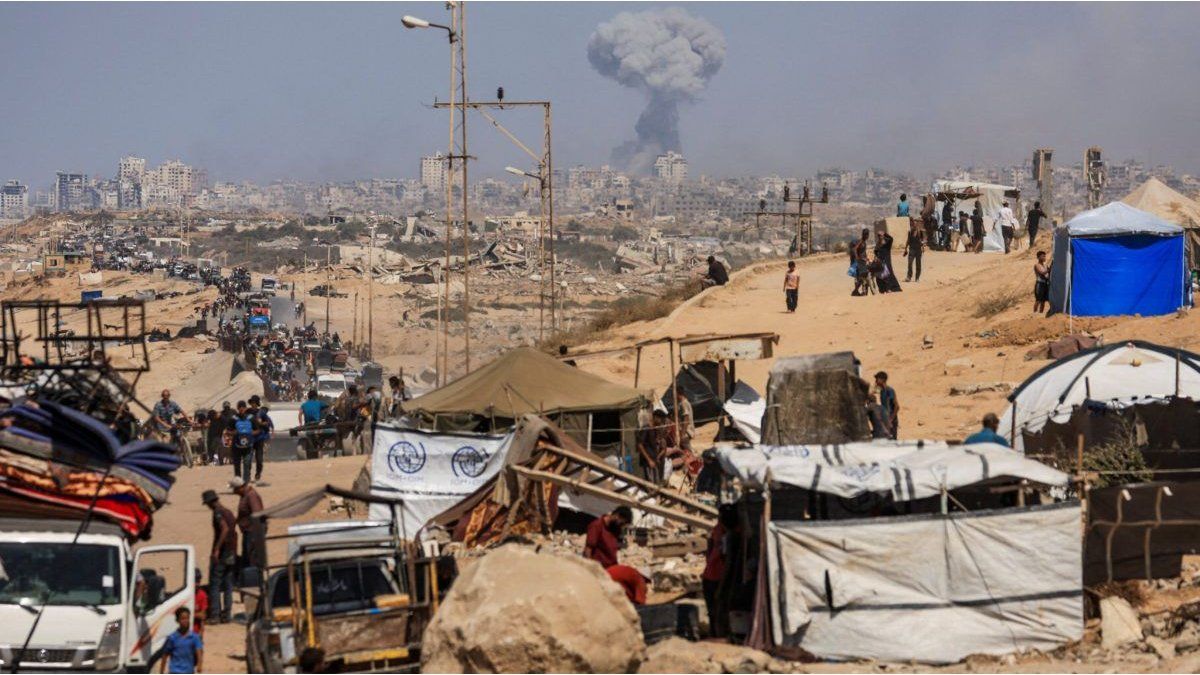Just a week ago, the right won the parliamentary elections in France by a landslide. But after the second round, many are likely to be rubbing their eyes in surprise: According to the election results, a left-wing alliance is likely to be the strongest force. According to the Ipsos and Ifop institutes, the Nouveau Front Populaire, made up of leftists, communists, socialists and greens, could win 177 to 192 of the 577 seats – and thus caused a big surprise. The centrist camp of President Emmanuel Macron and Attal, on the other hand, has dropped from 250 to 152 to 169 seats.
None of the groups is likely to achieve an absolute majority of 289 seats, so a majority capable of forming a government is not in sight, and the left also lacks a common leadership. It is also uncertain what the result means for Germany and Europe. In France, Prime Minister Gabriel Attal has meanwhile drawn the first consequences and announced his resignation.
Victory celebrations and riots
A landslide victory for the right-wing nationalist Rassemblement National (RN) led by Marine Le Pen was actually expected. The party and its allies are growing from 88 to 138 to 145 seats – and are therefore likely to come in third place. Le Pen was calm after the first projections: “The tide continues to rise and our victory today is only postponed.” RN leader Jordan Bardella also said that his party was the only alternative to the alleged “unity party” of the left camp and the centre forces.
Riots broke out at demonstrations in cities across the country during the night. In Paris, thousands of people gathered on the Place de la République in the center of the capital to celebrate the victory of the left-wing coalition. According to media reports, some of the demonstrators clashed with law enforcement officers, who then used tear gas. Wooden barricades were set on fire. Clashes also broke out in Lille, Rennes and Nantes.
Federal government relieved after results from France
Politicians abroad are responding with relief to the setback suffered by the right-wing populists in France. There is “a certain sense of relief that things that were feared have not happened,” said Federal Government spokesman Steffen Hebestreit on Monday in Berlin. We must now wait and see “how a government emerges in this very unusual and historic constellation.”
Vice Chancellor Robert Habeck described the election result as encouraging. “First of all, it is good that nationalism in Europe is not becoming ever stronger,” the Green politician told journalists in Stuttgart on Monday. Nevertheless, there are still many challenges for Europe and the German-French relationship, said the Economics Minister.
Left alliance surprisingly ahead – serious riots in Paris
01:27mins
The chairman of the Bundestag’s Foreign Affairs Committee, Michael Roth, sees no reason to sound the all-clear. “The advance of right-wing nationalists and right-wing extremists has been stopped. This is a great achievement of the French,” the SPD politician told the “Tagesspiegel” (online edition). “But it is still far too early to sound the all-clear, because the nationalist populists on the right and left are stronger than ever. The center is weaker than ever. Emmanuel Macron has failed miserably.”
CDU politician Armin Laschet, on the other hand, sees opportunities for the upcoming elections in Germany. “The feeling that France is actually already on the way to the right is wrong,” said Laschet, who is a member of the board of the Franco-German Parliamentary Assembly, on Monday in the ZDF “Morgenmagazin”. The situation in France reminds him a little of the upcoming elections in Germany: “We are also acting as if East Germany is already in the hands of the AfD. But they only have a third.” If two thirds vote and voter turnout is high, “the chance of keeping the AfD out is just as great as in France.”
Grand coalition or minority government?
What will happen next in France is unclear for the time being. It is uncertain whether the left can form a minority government on its own. The other factions could bring down such a government with a vote of no confidence.
If neither camp can find a government majority, the current government could take over on an interim basis or a government of experts could be appointed. In such a scenario, France is threatened with political deadlock. Another dissolution of parliament by Macron and new elections will not be possible until July 2025.
Source: Stern
I have been working in the news industry for over 6 years, first as a reporter and now as an editor. I have covered politics extensively, and my work has appeared in major newspapers and online news outlets around the world. In addition to my writing, I also contribute regularly to 24 Hours World.




